为了强化“禅院”的体验,“山”的意象也在体验中被一再提示,不仅进入酒店前需要真实的爬山,一条“游山”的路径也被设计进了酒店内部。
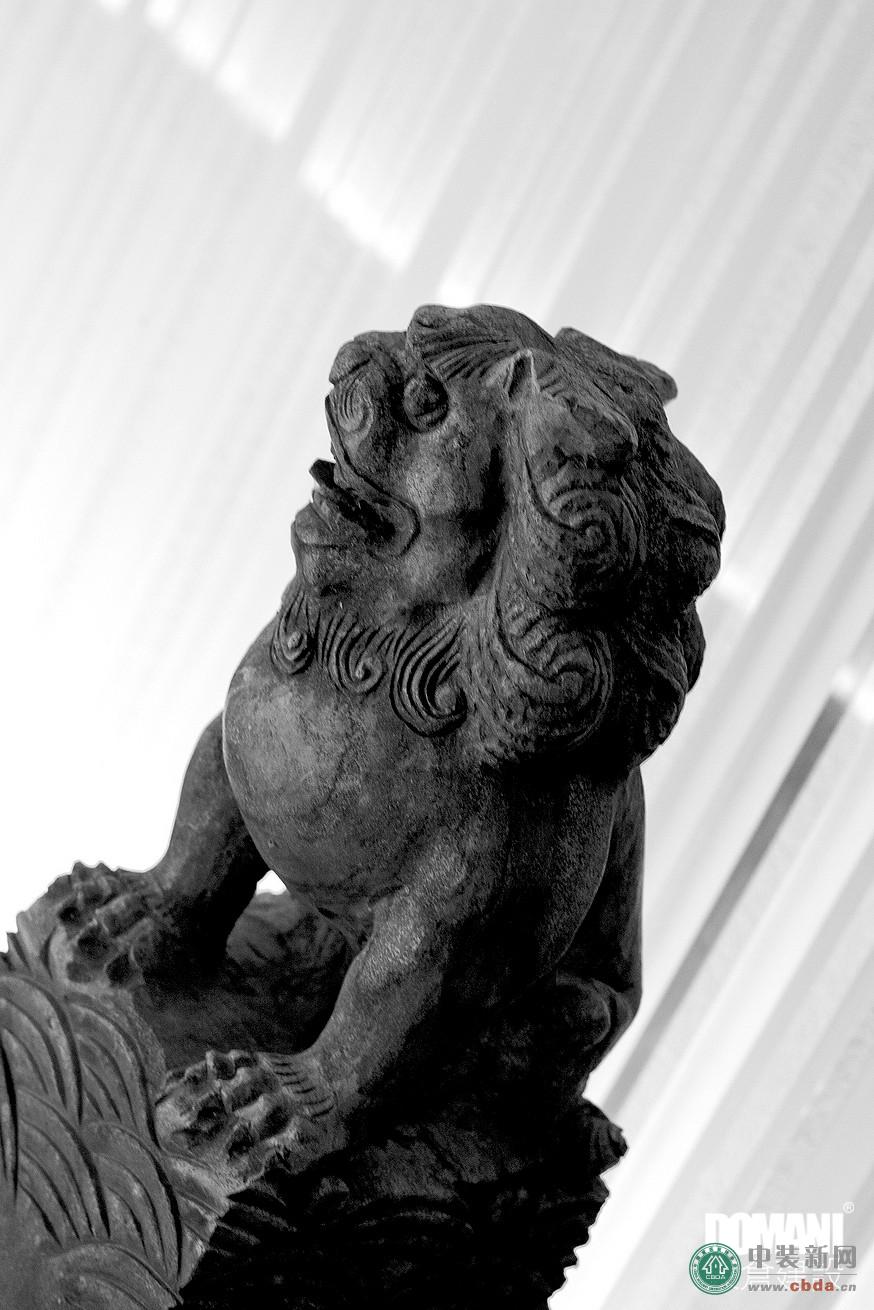
东仓建设张星:香港COCO办公室
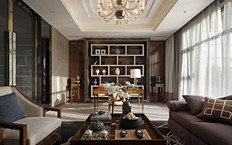
梁志天:北京富力湾湖心岛别墅项目A2户型
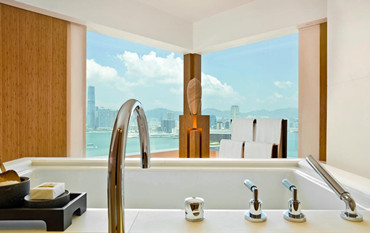
傅厚民:香港奕居精品酒店设计
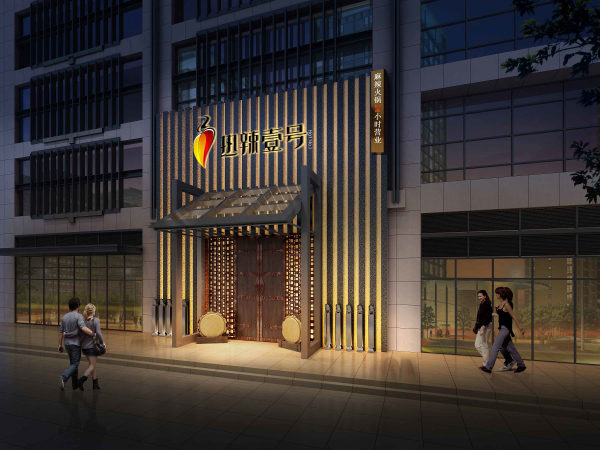
李冰冰、黄晓明、任泉合营火锅店热辣一号设计方案

享受工作时间 Google以色列新办公室奢华设计

Work8众创空间——最具颠覆性的办公空间设计

最令人向往的办公室 都柏林google办公空间设计
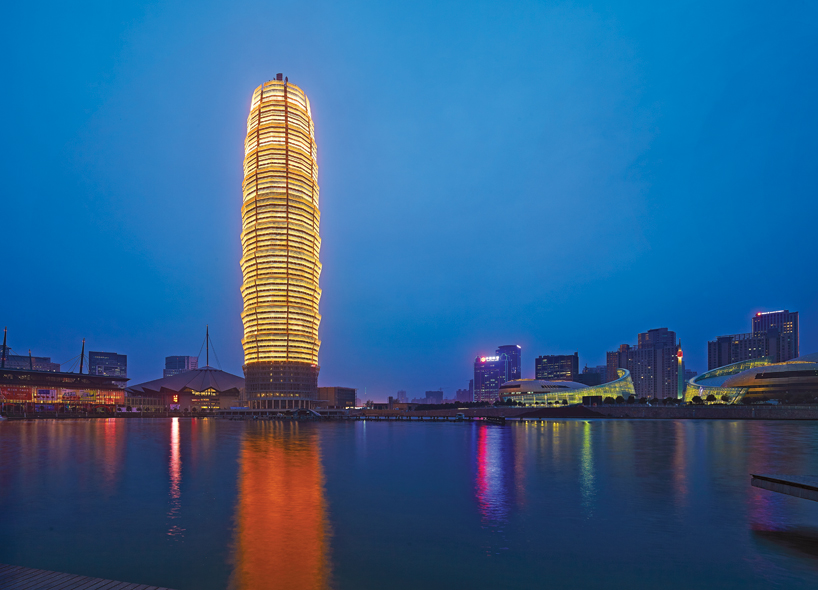
大玉米棒子?60层高新地标绽放郑州!
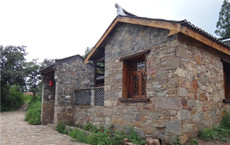
孙君:广水市桃源村乡村景观改造 古村落浴火重生
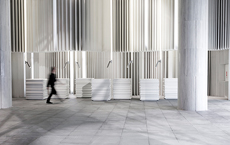
罗灵杰、龙慧祺设计作品:南昌新华银兴国际影城
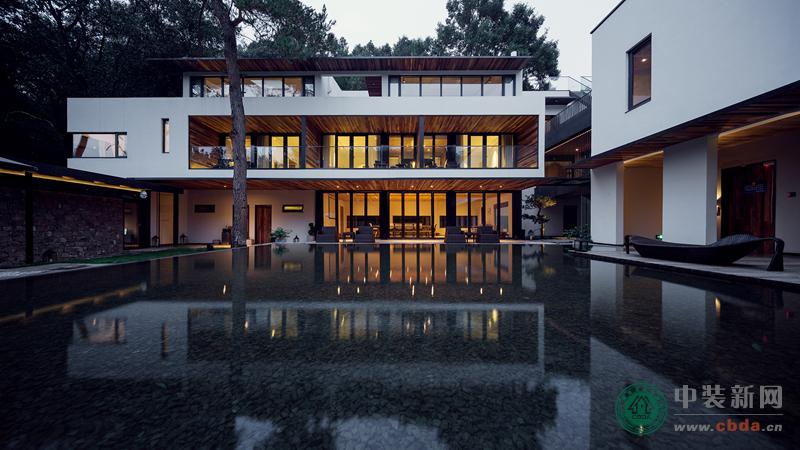

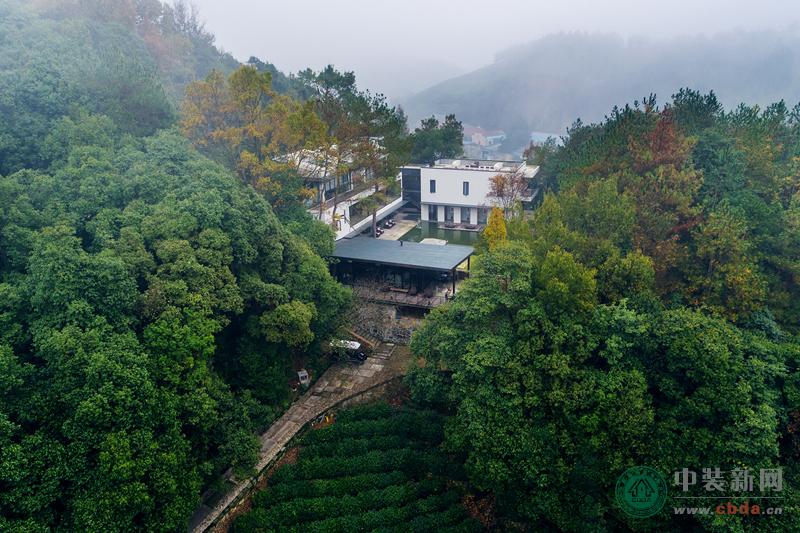
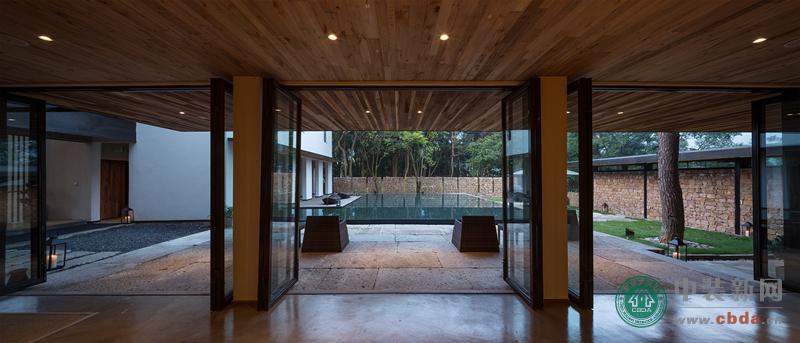
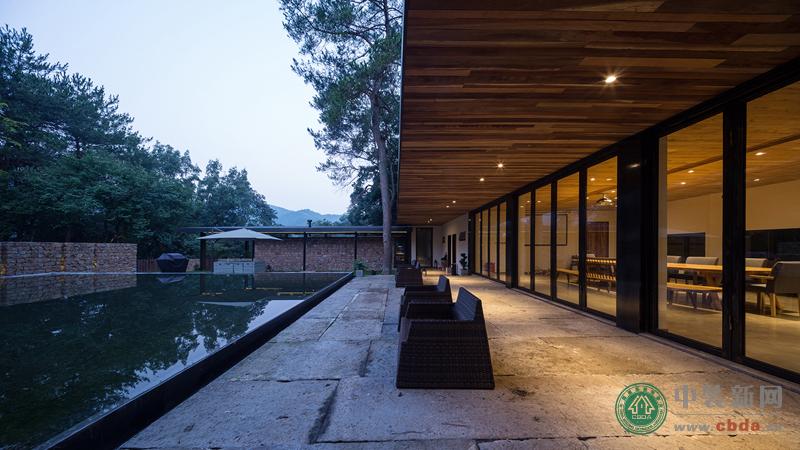
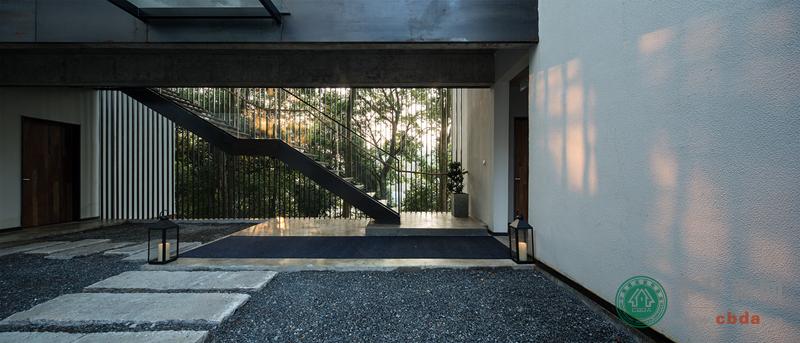
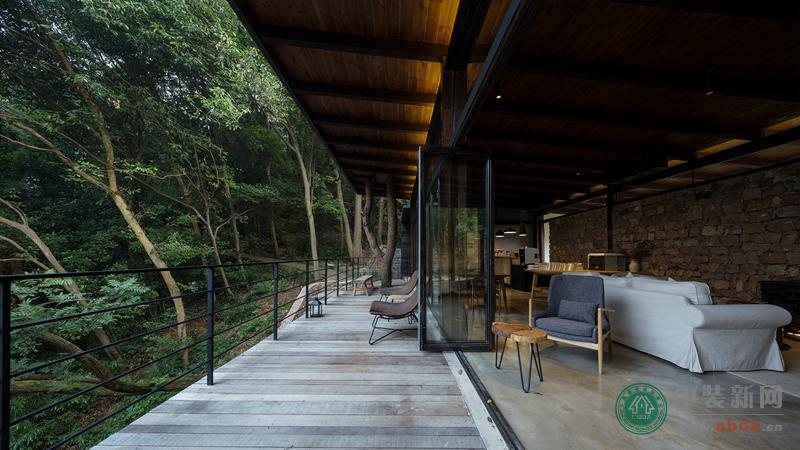
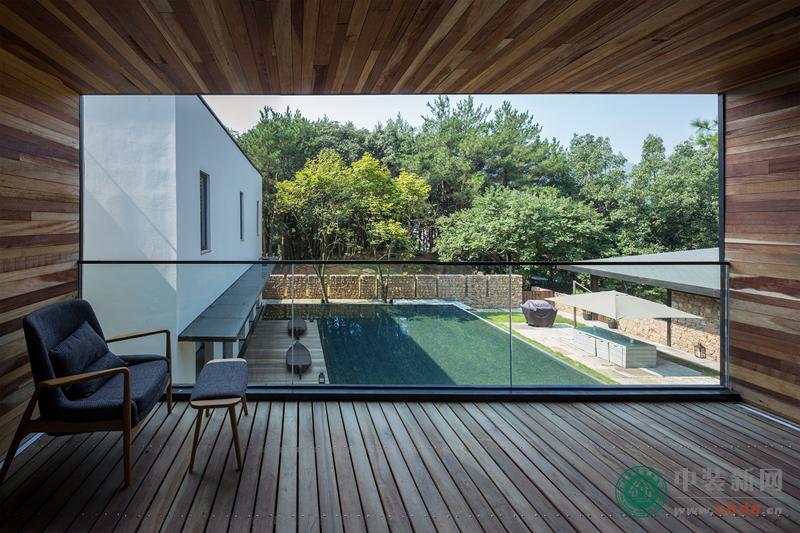
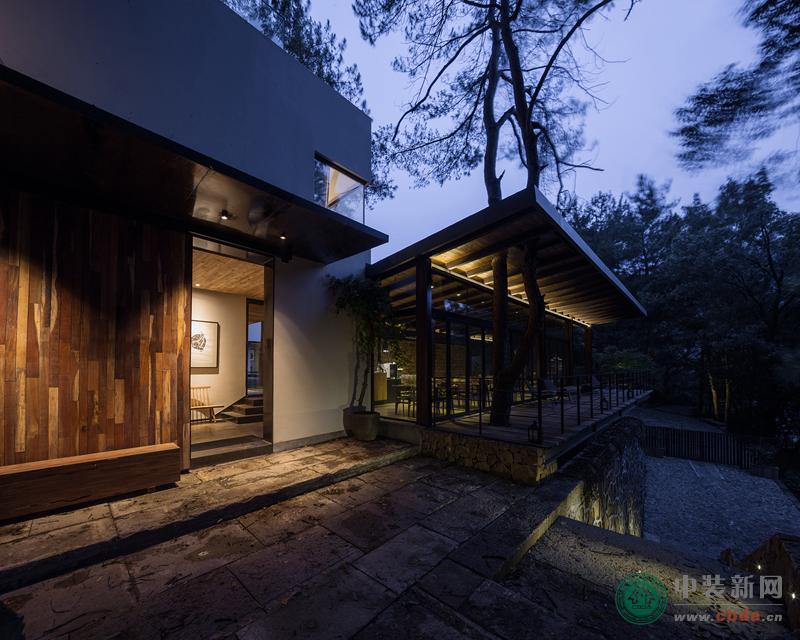
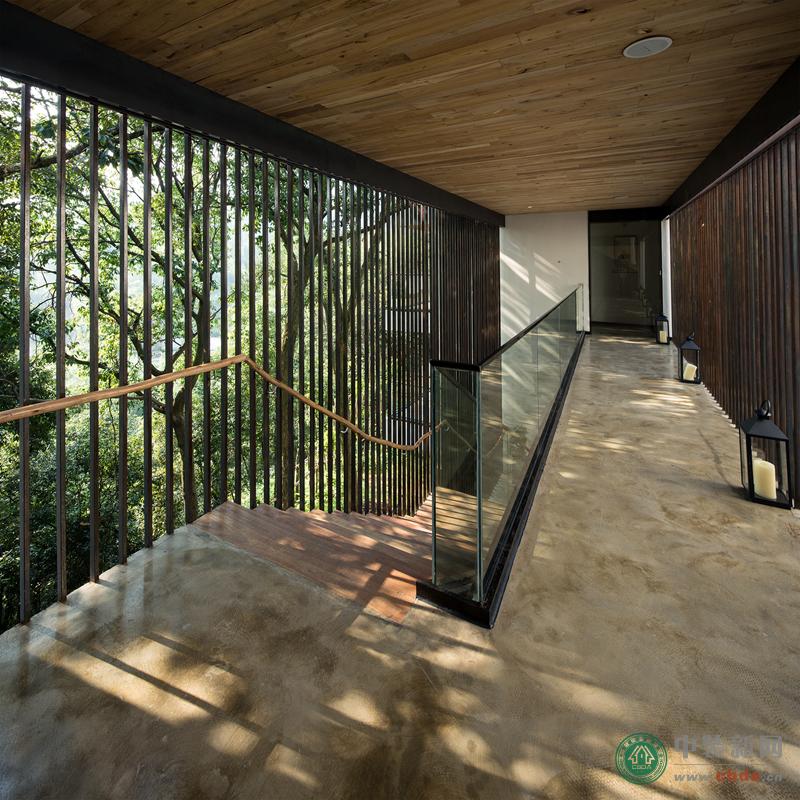

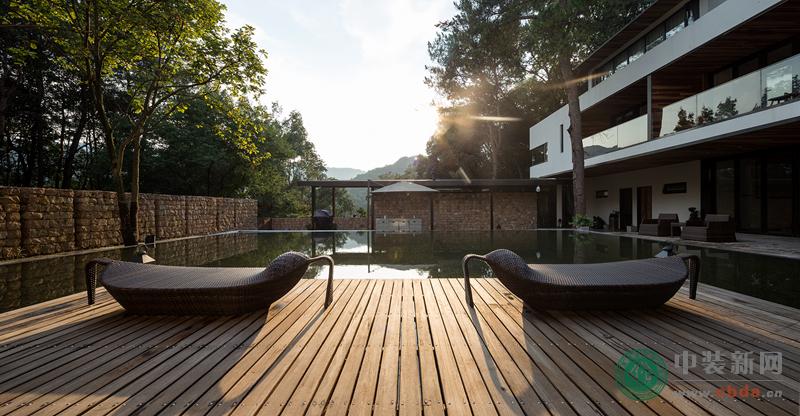
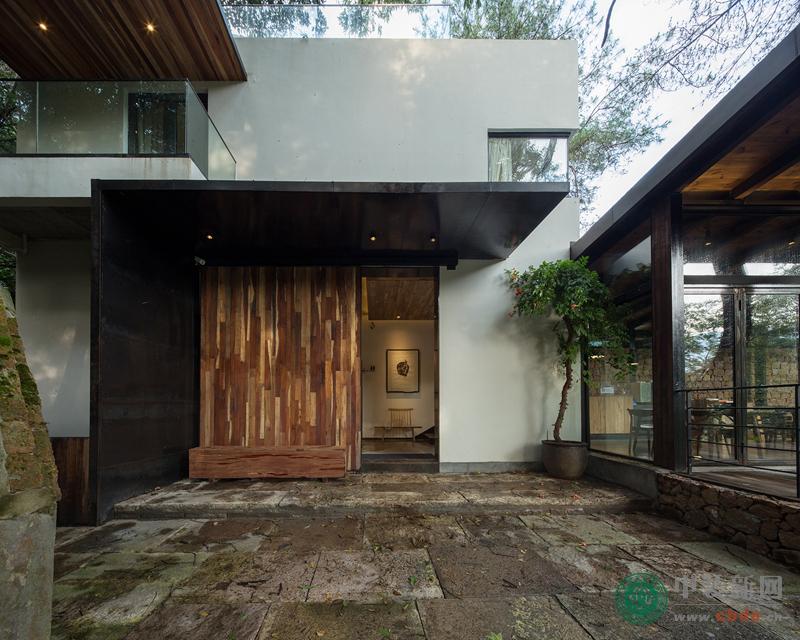
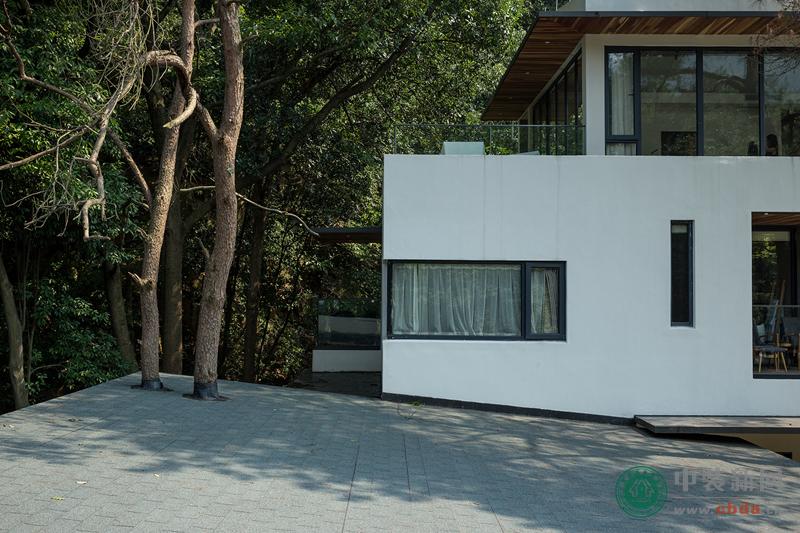
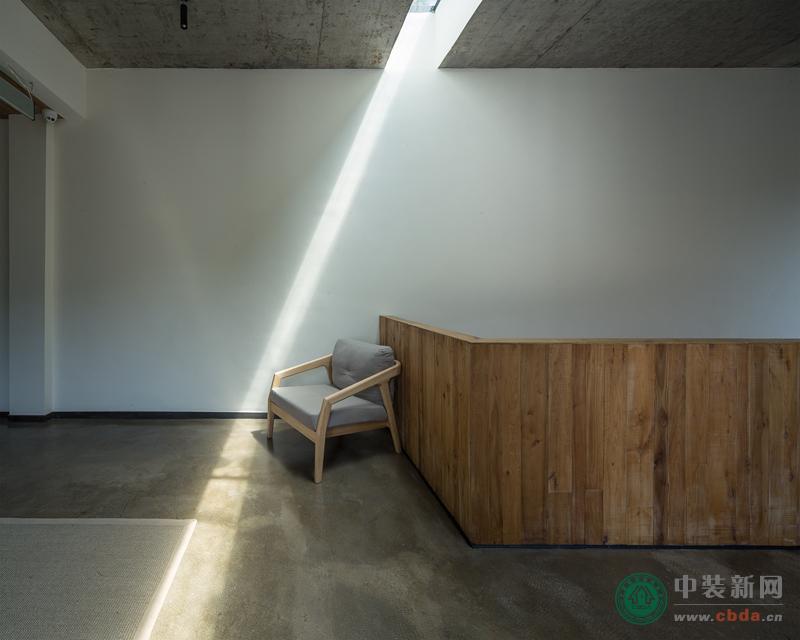

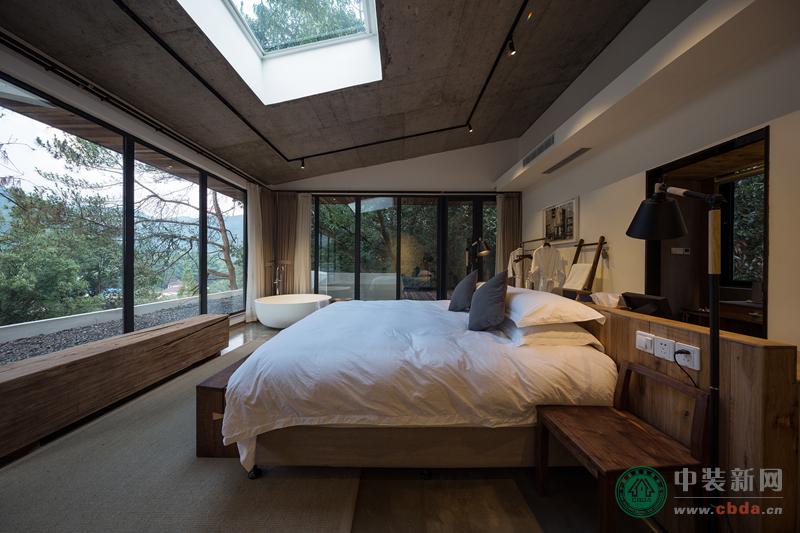
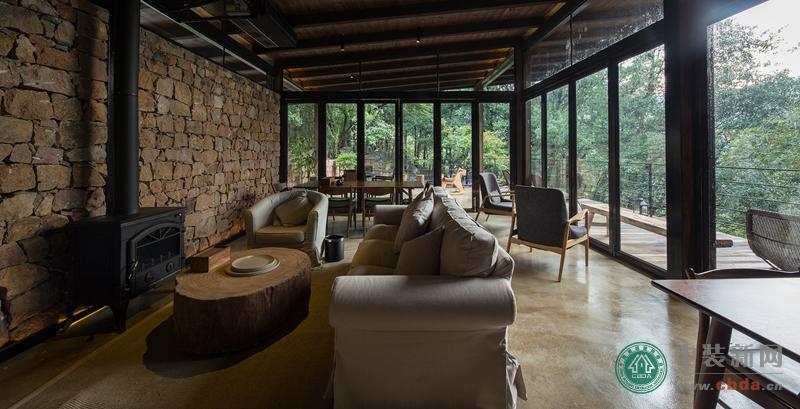
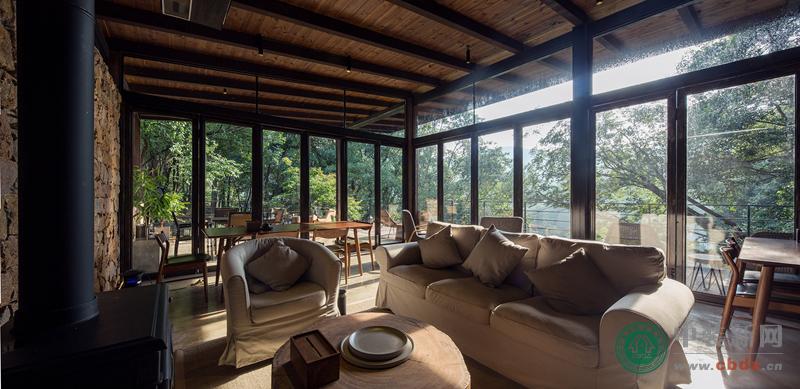
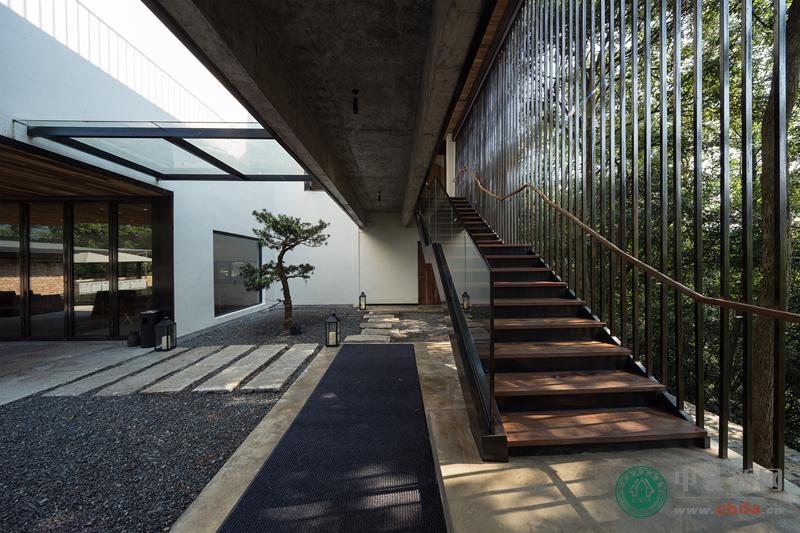
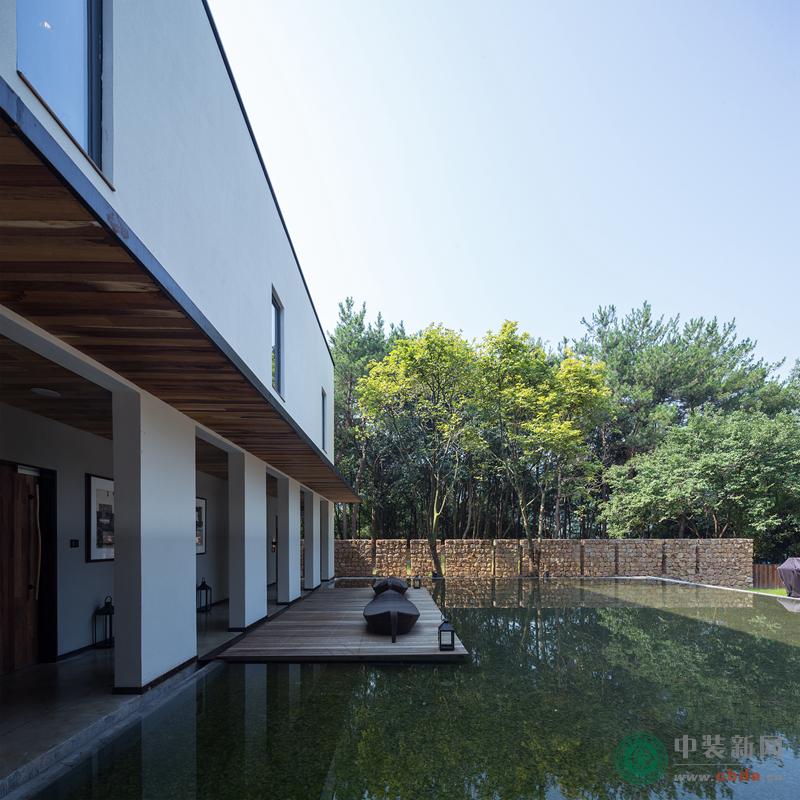
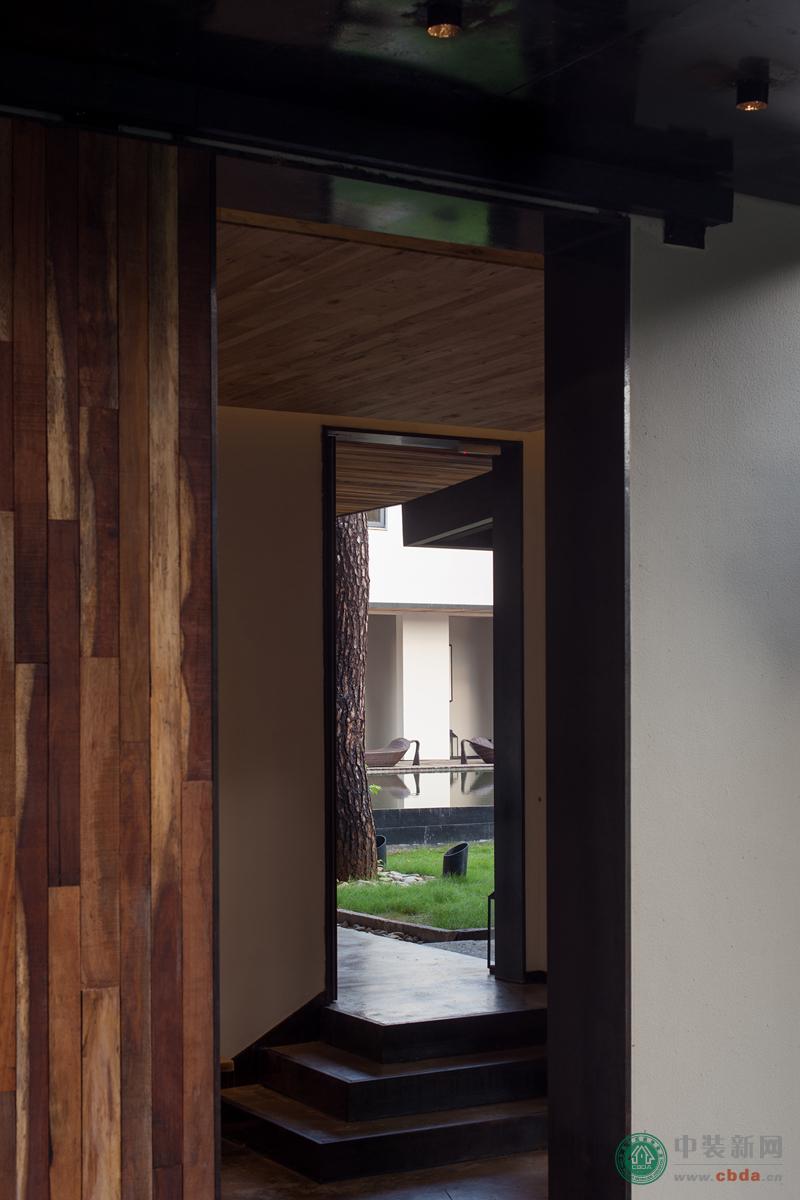
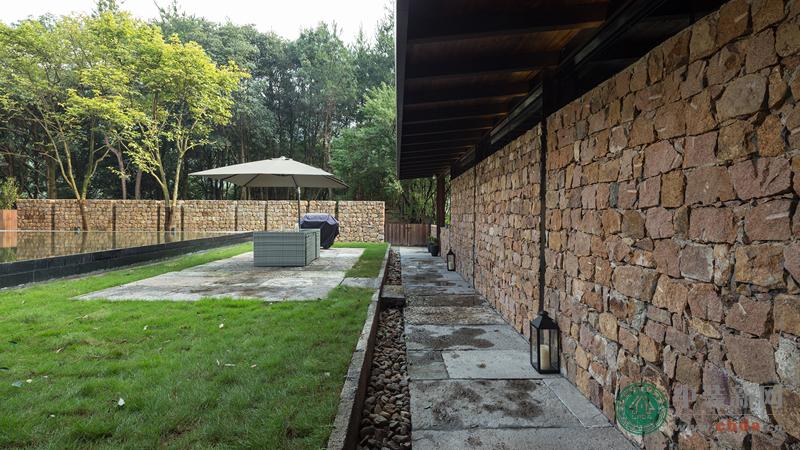
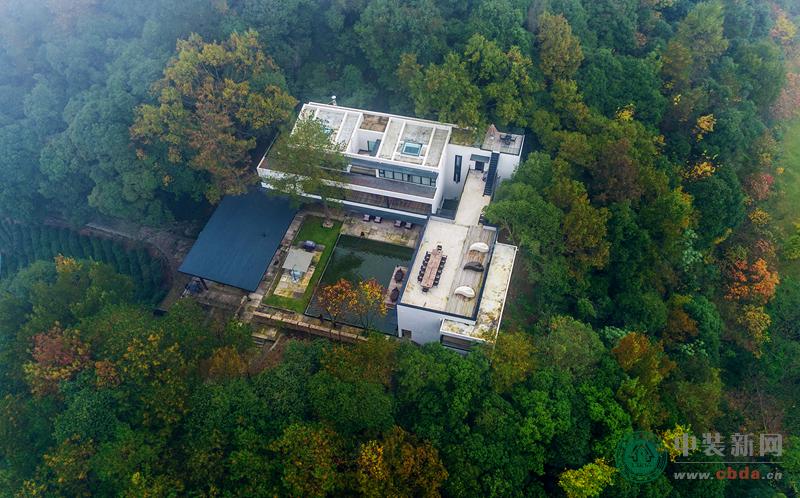
杭州径山精品酒店
设计单位: 久舍营造工作室(场地规划/建筑设计/室内设计/景观设计)
微信号:continuation2016
设计团队: 范久江、翟文婷、吕爽尔、高琦、黄銮铎
建设单位: 杭州都市快报报业集团
项目地点: 杭州·径山
项目类型: 精品酒店
项目规模: 约1100㎡
专业顾问: 盛健康、花勇刚、朱丹、黄建宝
设计时间: 2014年11月-2015年8月
建成时间: 2016年7月
摄影团队: SHIROMIO工作室
这是一个从场地经营开始的设计。场地约一亩地大小,坐落于水库大坝一侧的山脊转折处。绿树环绕的基地内原有一幢两层高的80年代的三合院宿舍楼,围合的院中有一棵姿态优雅的高耸松树,树冠笼罩着部分建筑与半个院落,成为了院子中最强烈的控制力。而项目所在地——禅茶道的发源地径山,又使这块场地天然具备了深厚的历史文化氛围。因此,保留院落结构与松树并塑造出潜在的场所精神,成为设计开始就确立的目标。
通过对周边景观资源的研判,西侧建筑的高度被降低为一层,西侧层层远山的轮廓成为了院中及客房阳台的重要景观,金色的夕阳也可以以接近水平的角度照进院中,朝西主立面在夕阳和水面的多维度强化下显现出强烈仪式感,塑造出“禅院”的意象。南侧以160公分高的院墙把山林与院子隔开。沿着山风吹来的路径,U形建筑北侧两个角部被打开:西北角的主入口设置了对角交错的两个门洞,从门外便可恰好看到院内保留的松树;而东北角增加了交通院,通透的直跑钢楼梯以黑色金属格栅与绿林相隔,引入山风的同时一并接纳了清晨的阳光。这两处斜向的对角院落『门厅』设置,也拉长了视线的距离,使原本140平米左右的院落被无限延伸。
为了强化“禅院”的体验,“山”的意象也在体验中被一再提示,不仅进入酒店前需要真实的爬山,一条“游山”的路径也被设计进了酒店内部:入口及院落被分解在多个标高,爬升行为被有意识地与场所光线的暧昧差别联系起来。光线被挑檐、水面、柱廊、格栅、天窗等要素仔细控制后,由下至上形成由暗『晦涩』及明『现代』的氛围转换,最终在只能看见天与树冠的屋顶露台达到明的极致,建筑『人工』从视线中消失。
在观景体验的营造上,设计着重表达了与自然“对坐”的观念。充满仪式感的框景角度与院落轴线,无不提醒使用者思考“人——天『自然』”这一组对象的对话关系。而自然、在地的材料使用:木、石、铁、白色涂料及玻璃,也暗示着一种自然建造的乡野现实。
Jingshan Boutique Hotel
Design company: Continuation Studio
Design Scope: Site Planning/Architecture/ Interior / Landscape
Lead Architects: Jiu-jiang Fan, Wen-ting Zhai, Shuang-erLyu, Qi Gao, Luan-duo Huang
Client: Hangzhou Urban Express Newspaper Group
Location: Jingshan, Hangzhou
Project Type: Boutique Hotel
Area: Approx. 1100㎡
Consultants: Jian-kang Sheng, Yong-gang Hua, Dan Zhu, Jian-bao Huang
Design Time: 2014.11-2015.08
Completed Year: 2016.07
Photographs: SHIROMIO Studio
This is a project that started from engaging with the site. The site is located up on a mountain ridge, next to a reservoir’s dam. There was previously a two-story “San-Ho-Yuan” style dormitory block built back in the 1980s, with a courtyard surrounded by the concave form of the block. There stands an ancient pine in the centre serves as the heart of the courtyard, with its dense canopy covering half of the courtyard and part of the building. Meanwhile, the historical context of the site, to the north of the Jing-Shan Mountain that once gestated the Zen tea ceremony, has prepared it with a deep historical and cultural ambiance. As a result, to preserve the courtyard structure as well as the ancient pine, in order to generate its potential spatial spirit, has been established as our design proposition.
Through the study of the surrounding landscapes, the decision was made to reduce the height of the west side of the building to one story, providing the courtyard and the rest of the building with the view of the outlines of distant hills from the west. Said method also induces the sunset nearly horizontally into the courtyard, sprinkling the main façade. Multilayers of water and light together paint the picture of a “Zen temple”, with an intense sense of ritual. On the south side of the yard, there lies a wall with the height of 160cm, separating the courtyard from the wild forest. Paths that come along with the mountain breeze go through the two corners opened up on the north side of this concave building. Through the two diagonally staggered doors on the north-west corner that is the main entrance, the pine retained in the yard can just be seen. While to the north –east entrance, a foyer of traffic is placed. The colours of black metal from this translucent steel stair and the green from the nature melt into each other, inducing the wild breeze and the morning sunshine. The establishment of these two foyers also expands the spatial sensation of the courtyard beyond its actual 140㎡.
In order to enhance the prospect of “Zen Temple”, the imagery of “mountain” has been implied along the experience process. It is revealed in the actual mountain climbing required before entering the hotel, as well as in the tour path inside the hotel that resembles a walk in mountain. The entrance and the courtyard is decomposed into various heights, generating nuances of light between different spaces, associating with the physical action of climbing with a subtle intension. The light within the space is controlled delicately by the eaves, the water, the colonnade, the grille, the skylines and other sorts of elements. The differences of light achieve the transition of ambiance from the dark “obscure” to the bright “modern” from the lower ground to the higher, and eventually reach its acme of brightness on the roof terrace, where only the sky and the pine canopy are in sight, from which the artificial beings of architecture simultaneously disappear.
The design method, regarding the viewing experience, focuses on the notion of “sitting face to face” with nature. Both of the ritualistic perspective angles and the axis of the courtyard intrigue beholders to ponder the relation between “nature” and “humanity”. For another, in terms of the use of natural materials on site, such as wood, stone, iron, white paint and glass, it also implies the naturality and rurality that lies in architectural renovation.